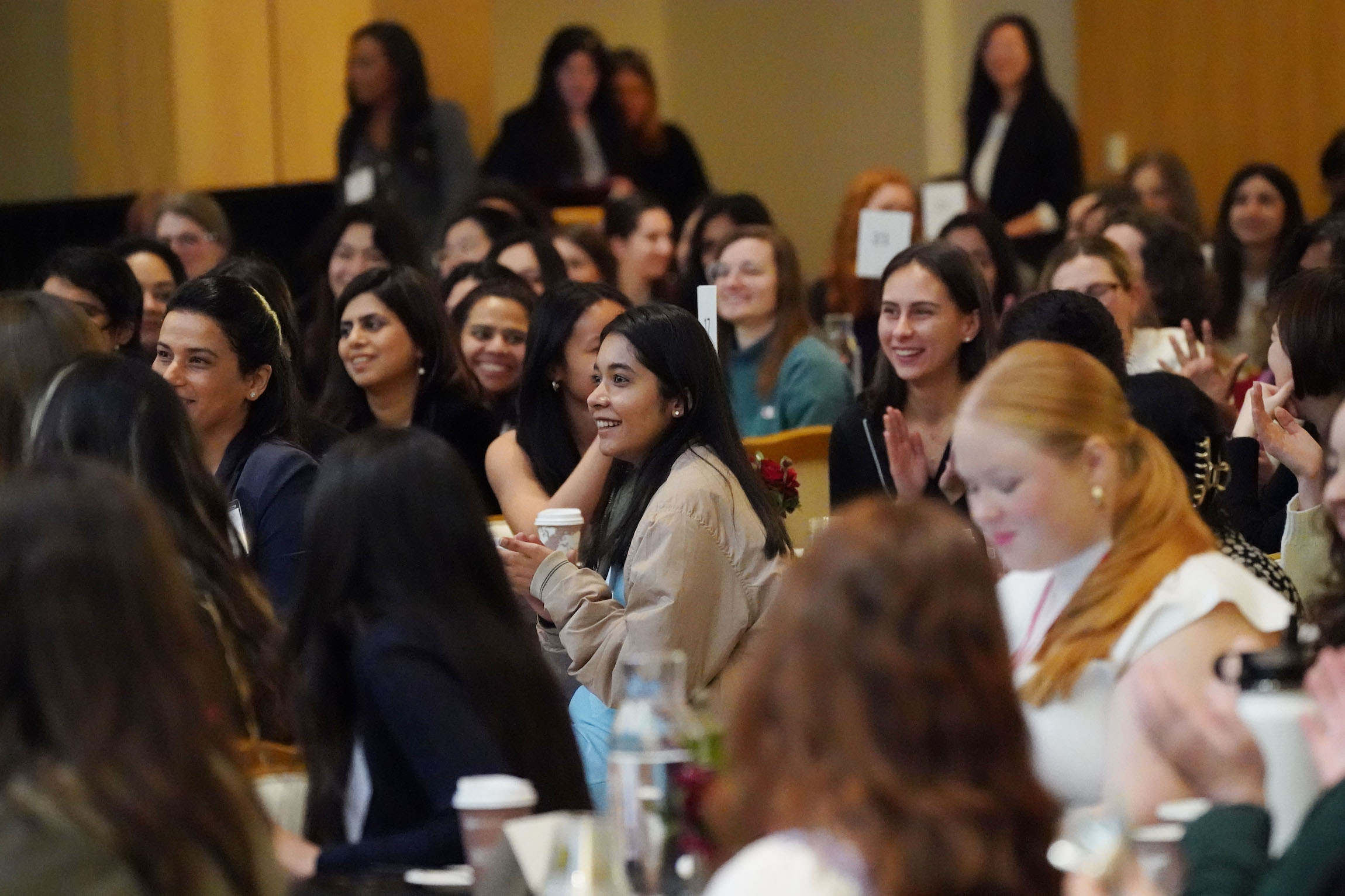Photo: David Gonzales
On March 8, 2024, more than 5,000 people from 65 countries joined the ninth annual Women in Data Science Worldwide conference held in-person at Stanford University, and online via livestream. Participants experienced keynotes, technical talks, fireside chats, panel discussions and networking opportunities.
Leading data scientists from industry, academia, government, and non-profit organizations discussed a wide range of topics on four central themes: Digital Economies, Child Safety and Health, Sustainability, and Space. Watch the recordings.
Power in Numbers:
ATTENDEES
LIVE STREAMS
SPEAKERS
STUDENTS
Emily Gordon, a Stanford Data Science Postdoctoral Fellow, delves into the intricate relationship between climate variability and data science. She underscores the pivotal significance of climate models in deciphering and forecasting the repercussions of climate change. Gordon’s research endeavors revolve around harnessing machine learning methodologies to bolster the predictability of climate change impacts, utilizing extensive repositories of climate data sourced from Earth system models and observations.
Rooted in her expertise in atmospheric science and data analysis, Gordon’s contributions propel the advancement of our comprehension of the intricate dynamics inherent in the Earth’s climate system. She highlights the potential for unexpected discoveries, stating, “We’re using our data-driven methods to understand … a certain response to climate change, and we could find something that’s not expected… This is an opportunity to discover new science.”
Zanele Munyikwa, PhD Candidate in Information Technologies, MIT discusses that in a time marked by rapid technological advancements, we find ourselves at a pivotal moment where decisions made by both organizations and governments profoundly shape the trajectory of innovation and its consequences. This era presents opportunities for heightened productivity alongside challenges such as job dissatisfaction and inequality. She states, “It’s very important to be focused on these non-traditional data sources because they can give us dimensions other than productivity, including thinking about job quality, job satisfaction, and worker well-being.”
Zanele’s presentation explores the transformative potential of data-driven insights, using a case study on generative AI adoption to demonstrate how leveraging data from various sources can illuminate the current state of work and pave the way for a more inclusive and sustainable workforce. By examining the intersection of data-driven insights and the future of work, the discussion aims to steer us towards a more equitable and promising digital future.
Dr. Rebecca Portnoff, Head of Data Science at Thorn, spearheads initiatives leveraging machine learning and artificial intelligence to combat child sexual abuse. With over a decade of experience in ML/AI and a background in computer science, she prioritizes wellness and collaboration in developing technology to accelerate victim identification and prevent abuse. Through her leadership, Thorn focuses on building tools to address the challenges posed by the proliferation of child sexual abuse material online, striving to make a significant impact in the child safety ecosystem. She asserts, “We can make a difference in these kids’ lives. If we work together.”
Victoria Da Poian, a Data Scientist at NASA Goddard Space Flight Center, focuses on leveraging machine learning and data science to enable science autonomy for future planetary exploration missions. She claims, “We have a big role as future data scientists, and as current data scientists. The data has a story to say, and you’re the voice for the story to be said.”
Her research aims to enhance exploration efficiency and optimize scientific returns by enabling spacecraft to make independent scientific decisions without constant communication with Earth’s teams. Victoria’s expertise lies in developing tools for planetary science instruments, particularly in analyzing mass spectrometry data to support scientists’ decision-making processes during space missions.
Engage Beyond the Conference
These and all the WiDS Stanford 2024 talks are now available on our YouTube channel. In the coming months, and throughout the year, we invite you to attend upcoming Regional Events, participate in new Upskill Workshops, register for the spring Datathon Challenge, join Uplink, (a career advocacy platform), get involved with NextGen, and listen to the WiDS Podcast.
Photos: David Gonzales
A Heartfelt Appreciation
This event wouldn’t have been possible without the dedication and support of numerous individuals and organizations. We extend our gratitude to the speakers, Stanford Data Science, and all the volunteers who worked behind the scenes to ensure a seamless experience for all participants. Our sincere appreciation to the sponsors whose contributions helped bring this event to fruition. We are grateful for their support. View our continued thanks.
Looking Ahead with Optimism
We’re moving towards our immediate mission to achieve 30% representation in education, innovation and leadership by 2030. Learn more about our immediate mission and long-term vision, and how you can get involved.


